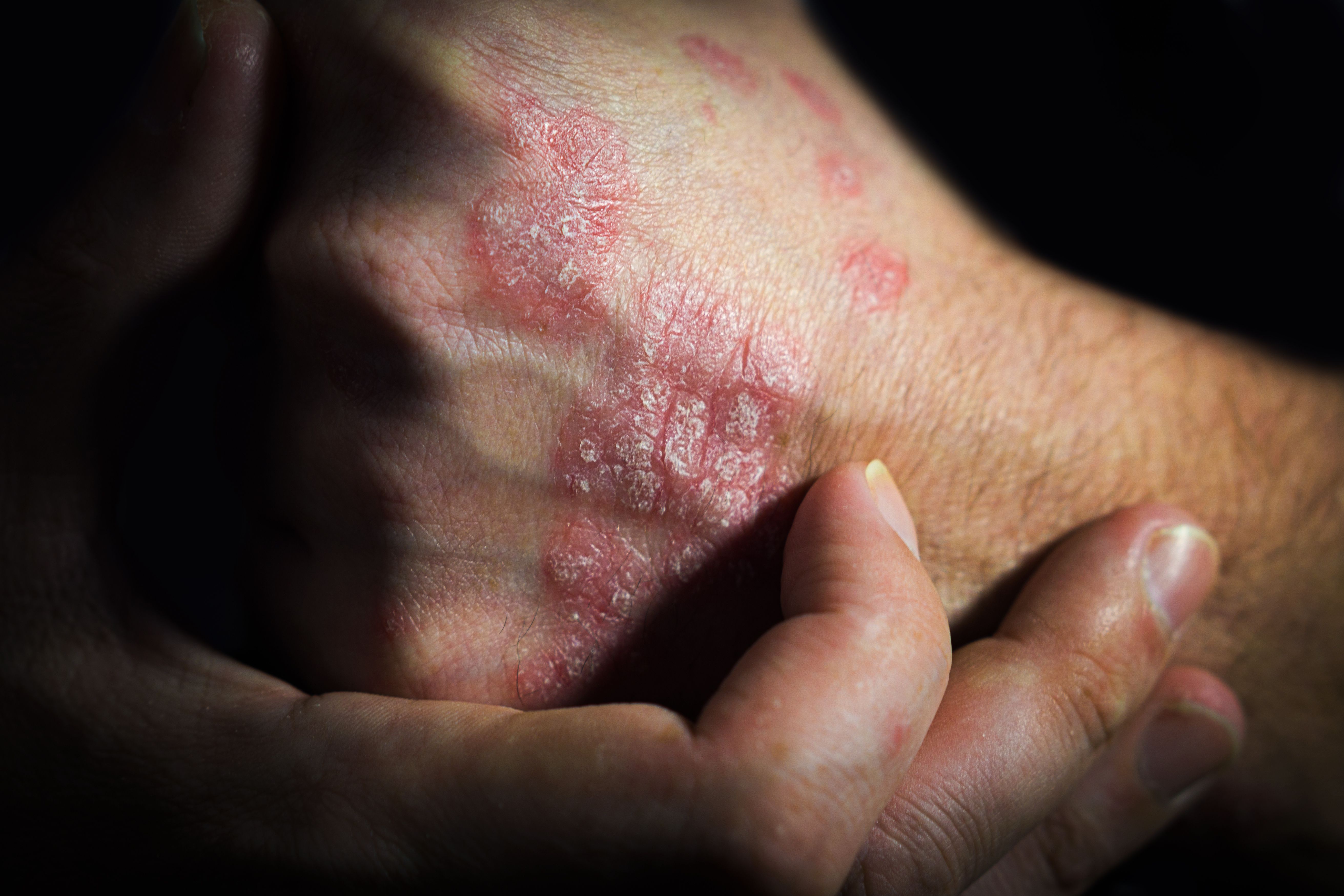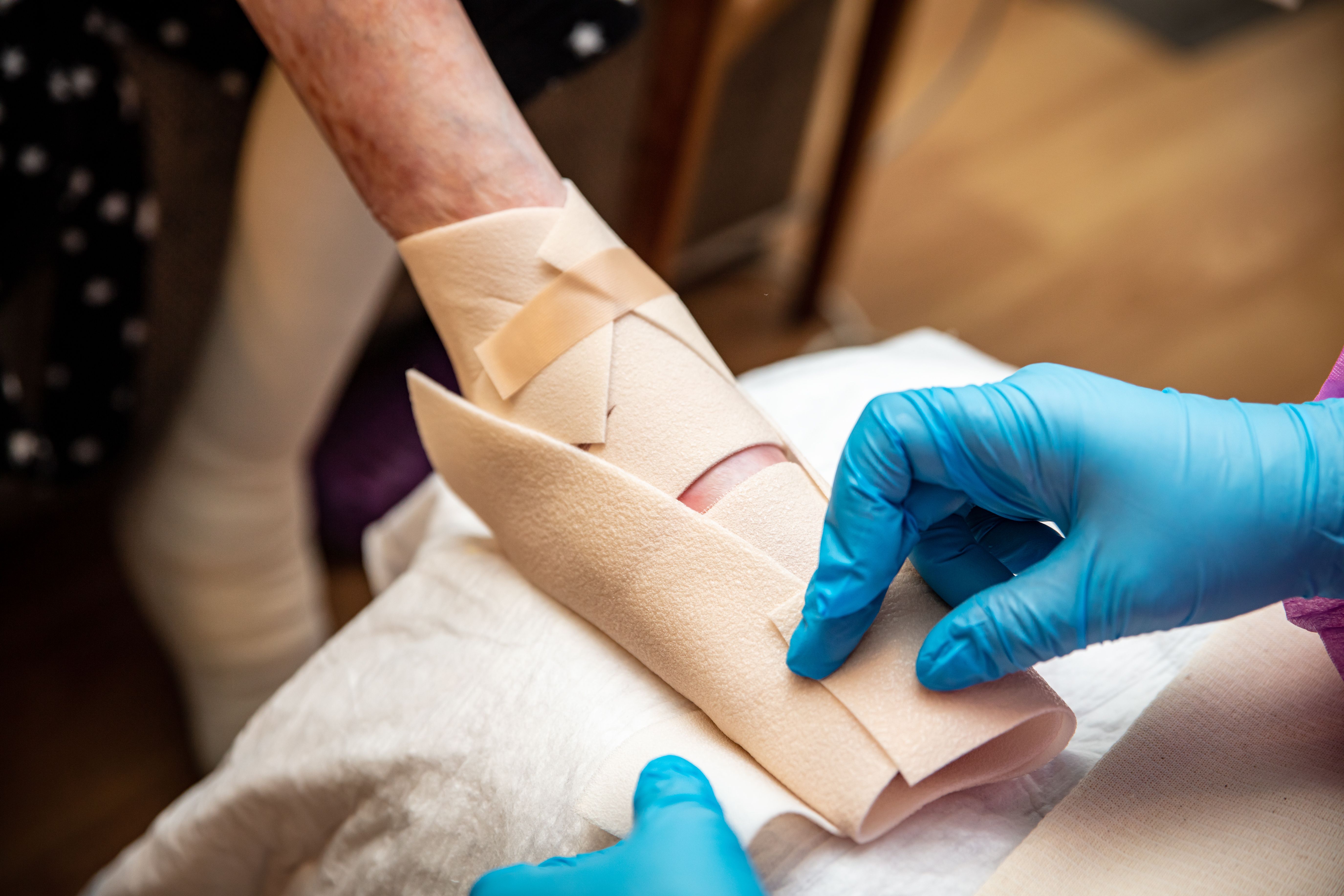- Acne
- Actinic Keratosis
- Aesthetics
- Alopecia
- Atopic Dermatitis
- Buy-and-Bill
- COVID-19
- Case-Based Roundtable
- Chronic Hand Eczema
- Chronic Spontaneous Urticaria
- Drug Watch
- Eczema
- General Dermatology
- Hidradenitis Suppurativa
- Melasma
- NP and PA
- Pediatric Dermatology
- Pigmentary Disorders
- Practice Management
- Precision Medicine and Biologics
- Prurigo Nodularis
- Psoriasis
- Psoriatic Arthritis
- Rare Disease
- Rosacea
- Skin Cancer
- Vitiligo
- Wound Care
Article
New Frontiers in Psoriatic Disease Research
Author(s):
An article published in the Journal of Investigative Dermatology examined genetic, environmental triggers, immunology, pathophysiology, and precision medicine in psoriasis.
Psoriasis is an inflammatory disease now understood to have interleukin (IL)-23/IL17 involvement, but an article published in the Journal of Investigative Dermatology decided to take a closer look at potential other factors contributing to the disease.1
Genetic Architecture of Psoriasis
The genetic susceptibility to psoriasis vulgaris (PsV) is poly genetic, the article explained, according to the sum of multiple genetic risk factors. The genome wide association studies (GWASs) have found more than 63 genetic risk loci.2 These risk loci account for 28% of PsV heritability, but broader genome-wide heritability for PsV is about 50%.3
“Of particular importance are genes associated with antigen presentation, such as major histocompatibility complex (MHC) I: HLA-C∗06:02, HLA-C∗12:03, HLA-B∗57:01, HLA-B∗38:01, and HLA-A∗02:01,” the authors wrote. The mutations of ERAP1 And ERAP2, which are linked to the peptide procession, have a connection to PsV.
View the table for more detail here.
Recent Discoveries in Genetics
Mendelian randomization demonstrated that obesity is not only associated with psoriasis, but as a risk factor for the disease.4 More studies of this nature may be able to help define more comorbidities, the researchers wrote. There are also many studies that have determined the potential role of psoriatic genetics in precision medicine.
“A meta-analysis showed that HLA-C∗06:02 is associated with favorable response to ustekinumab in patients with PsV whereas another study showed that lack of HLA-C∗06:02 is associated with better response to adalimumab,”5,6 the authors wrote. “Using a machine learning approach involving ~200 genetic loci, researchers have developed a model to predict psoriatic arthritis with an area under the receiver operator curve of 0.82.”7
Environmental Factors
Although smoking is associated with a higher risk of psoriatic arthritis in the general population, of patients who have been diagnosed with psoriasis, there is no significant relationship.8 The effect of alcohol on psoriasis incidence is still unclear.
Medications that have been shown to induct or exacerbate psoriasis are:9,10
- β-blockers
- Lithium
- Antimalarials
- Imiquimod (IMQ)
- Nonsteroidal anti-inflammatory drugs
- Interferon (IFN)-α,
- Terbinafine
Obesity and diet are risk factors for psoriasis, but diet has been shown to have a bigger role than previously thought, the article continues. Stress, infections, and the gut biome have all been researched as for their connection to psoriasis.
Immunology
“Data from GWAS and other preclinical studies suggest that although certain immunopathogenic mechanisms may be shared, there are likely also tissue-specific microenvironmental factors that contribute to the phenotypic heterogeneity of psoriasis and psoriatic arthritis,” the authors wrote.
The IL-23 and IL-17 axis is common for the pathogenesis of cutaneous psoriasis, psoriatic arthritis, and enthesitis. Binding of IL-23 to the heterodimeric IL-23R/IL-12R β1 receptor activates the Tyk2- and Jak2-dependent signal transducers and activator of transcription 3 signaling, which promotes the expansion of Th17 and Tc17 cells that secrete IL-17A, IL-17F, and TNF, the article further explained.
Differences in tissue-specific cues can result in the activation of unique pathogenic pathways in the skin and synovium. This can cause inflammation. Locally presented antigens are another element of the immune microenvironment that may play a key role in psoriatic inflammation.
Please visit the article to read about the mouse models.
Precision Medicine
Precision medicine can be used to address gaps in care by creating treatments based on each patients’ characteristics. These clinical features can help physicians classify patients into subpopulations based on likelihood of response to treatment or development of comorbidities.
These factors can be used to create data sets:
- Therapeutic levels
- Genome
- Microbiome
- Lipidome
- Glycome
- Microbiome
- Lipidome
- Glycome
- Proteome
- Metabolome
Another critical element is improvement in electronical medical records.
“The next frontier lies in harnessing this information in the clinical setting to deliver more timely, effective, and personalized care,” the authors concluded.
Disclosures:
Johann Gudjonsson has received grant support from AbbVie, Almirall, Bristol-Myers Squibb/Celgene Novartis, Eli Lilly, and Kyowa-Kirin and served as an advisor to Almirall, Novartis, Eli Lilly, and AnaptysBio.
Jose Scher has consulted for AbbVie, Janssen, Novartis, Sanofi, Eli Lilly, UCB, Amgen, and Pfizer and received research grant support from Pfizer and Amgen.
Wilson Liao has received research grant support from AbbVie, Amgen, Janssen Pharmaceuticals, Novartis, Pfizer, Regeneron, and TRex Bio.
Stacie Bell is an employee of the National Psoriasis Foundation.
The remaining authors state no conflict of interest.
Reference:
- Yan D, Gudjonsson JE, Le S, et al. New frontiers in psoriatic disease research, part i: genetics, environmental triggers, immunology, pathophysiology, and precision medicine. J Invest Dermatol. 2021;141(9):2112-2122.e3. doi:10.1016/j.jid.2021.02.764
- Tsoi LC, Stuart PE, Tian C, et al. Large scale meta-analysis characterizes genetic architecture for common psoriasis associated variants. Nat Commun. 2017;8:15382. doi:10.1038/ncomms15382
- Li Q, Chandran V, Tsoi L, et al. Quantifying differences in heritability among psoriatic arthritis (Psa), cutaneous psoriasis (Psc) and psoriasis vulgaris(Psv). Sci Rep. 2020;10(1):4925. doi:10.1038/s41598-020-61981-5
- Emdin CA, Khera AV, Kathiresan S. Mendelian randomization. JAMA. 2017;318(19):1925-1926. doi:10.1001/jama.2017.17219
- van Vugt LJ, van den Reek JMPA, Hannink G, Coenen MJH, de Jong EMGJ. Association of hla-c*06:02 status with differential response to ustekinumab in patients with psoriasis: a systematic review and meta-analysis. JAMA Dermatol. 2019;155(6):708-715. doi:10.1001/jamadermatol.2019.0098
- Dand N, Duckworth M, Baudry D, et al. HLA-C*06:02 genotype is a predictive biomarker of biologic treatment response in psoriasis. J Allergy Clin Immunol. 2019;143(6):2120-2130. doi:10.1016/j.jaci.2018.11.038
- Patrick MT, Stuart PE, Raja K, et al. Genetic signature to provide robust risk assessment of psoriatic arthritis development in psoriasis patients. Nat Commun. 2018;9(1):4178. doi:10.1038/s41467-018-06672-6
- Pezzolo E, Naldi L. The relationship between smoking, psoriasis and psoriatic arthritis. Expert Rev Clin Immunol. 2019;15(1):41-48. doi:10.1080/1744666X.2019.1543591
- Balak DM, Hajdarbegovic E. Drug-induced psoriasis: clinical perspectives. Psoriasis (Auckl). 2017;7:87-94. doi:10.2147/PTT.S126727
- Kim GK, Del Rosso JQ. Drug-provoked psoriasis: is it drug induced or drug aggravated?: understanding pathophysiology and clinical relevance. J Clin Aesthet Dermatol. 2010;3(1):32-38.
Newsletter
Like what you’re reading? Subscribe to Dermatology Times for weekly updates on therapies, innovations, and real-world practice tips.









